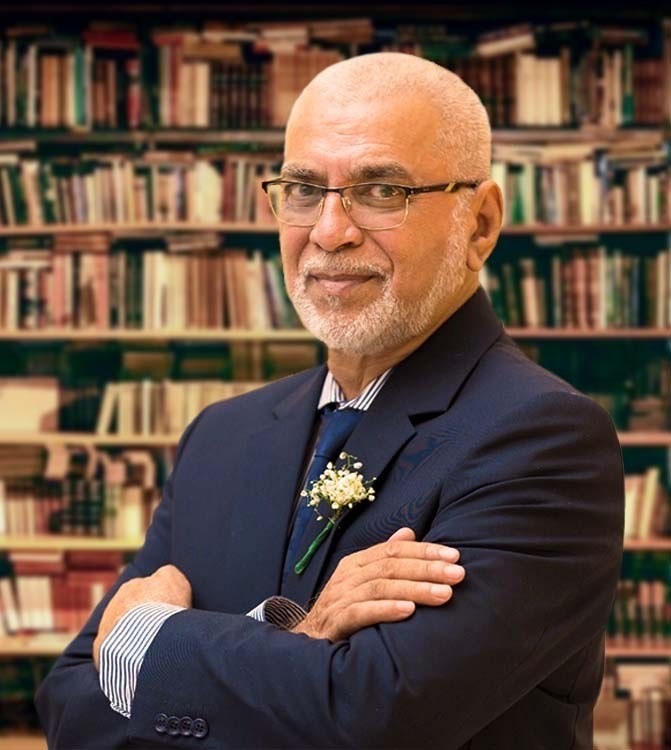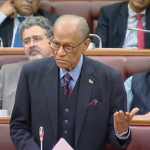Great nations, with their glorious history, rich culture and shining civilization, never allow ordeals and problems to halt their course. Strong with their spiritual and moral values, they never shrink from difficulties and challenges. For they have full potential to remain rock steady before any sort of intrusion upon their identity and integrity.
The Muslim Ummah, like any great nation, never succumbs to evil forces and despair. It stands firm and unshaken before challenges and troubles, no matter how hard they may be. The Almighty has made the Ummah of Mohammad (s.a.w) the best Ummah that has evolved for mankind. For Muslims, with faith in Allah alone as the source of their strength, carry the responsibility of enjoining good deeds and forbidding evil deeds, upholding the True Faith, and sharing in the effort to inhabit and maintain the earth, in accordance with Allah’s practice.
From all the adversities that have plagued its history, the Muslim Ummah would come out stronger than ever before. The point is that Muslims always rise from the ashes of painful experiences and continue their steadfast course, never bowing to inimical plots hatched against them.
The situation in which the Muslim Ummah currently finds itself today, is no less challenging than the one it has experienced, not alone in the past 21st AD century (14th AH), when various parts of the Muslim world fell to European occupation, but also in far ancient times.
If there is one reason why today’s situation seems complicated than ever before, it is that the media and communication technologies have progressed so much so that the slightest thing that occurs in some part of the world, now a global village, including the Muslim world, is seen and heard by the rest of the world. One other obvious reason is that the campaigns waged against the Muslim Ummah have escalated to horrifying proportions. This is what makes the events thundering across the Muslim world seem as if they were insurmountable.
Such is Allah’s way ever since the universe was created. He, the Creator of Heavens and Earth, has promised eternal victory to the Muslim Ummah. And from this, we should draw hope and power to undauntedly forge ahead. In life there must be no reason for despair, for from weakness springs power and from darkness shines the beams of light. One has to understand that crisis may reach boiling points, but they all have an end.
Today, we all know that the Muslims, their religion and their countries are in a state of crisis. Everywhere we see Muslim countries being destroyed, their citizens forced to flee their countries, forced to seek refuge in non-Muslim countries. While other countries devastated by World War II have recovered and developed, many Muslim nations seem unable to be governed well, much less to be developed and prosper. Fratricidal wars, civil wars, failed governments and many other catastrophes continue to confront many Muslim countries and Islam without any serious effort being made to end or reduce them or to rehabilitate the religion.
Yet, we firmly believe that far at the end of the tunnel there is light, and there is always scope to improve. The Quran says: “Ô My servants who have transgressed against themselves [by sinning], do not despair of the mercy of Allah. Indeed, Allah forgives all sins. Indeed, it is He who is the Forgiving, the Merciful.” (39:53)
History shows us that the Islamic civilization reached its zenith, in all areas of intellectual and cultural achievement, at a time when Muslims, who conquered vast areas of the world and freed people from oppression and slavery, were riddled with intense conflicts between good and evil, and confronted with grave challenges from neighboring forces, and ill-motivated intrigues.
In the years following the fall of Baghdad and the end of the Abbasid Caliphate at the hands of the Mongols who, in the mid-sixth century, devastated the eastern parts of the lands of Islam, Muslims reached unprecedented heights of human production in the realms of thought and literature. The point is that the fall in 565 AH of Baghdad, and the appalling atrocities and crimes that ensued, was not the end of history: it gave a new birth to the Islamic civilization and stimulus to greater achievement in culture, science, literature, art, crafts and other fields.
Scholars, jurists, poets and historians greatly contributed to promoting Islamic thought and Islamic culture. They stood, through their pioneering works, as a bulwark against intrusions on the Islamic thought by the Catholics and other religious groups such as Buddhists in China.
Despite the troubled times through which today’s Muslim world is passing, the Islamic thought will follow new paths, opening onto brand new trends. It will embark on the global human thought, in quest for remedial solutions to the problems and challenges posed to the Muslim Ummah. The Muslim world will, God willing, undertake rapid and ongoing changes as we enter the year 2024. So, the task for the Islamic thought is to find a way out of the current civilizational crisis, rise up to the great many challenges confronting the Muslim Ummah, and thus contribute to best shaping the future of human civilization. Crisis and problems, no matter how grave they are, only unleash the human potential, providing stimulus to think about the present and the future, and rethink the part that is to be taken by critical, independent thinking to advance society and promote human life in general.
Certainly, the acute crisis confronting today’s Muslim Ummah will invigorate the Islamic thought and allow for its regeneration, infusing it with new blood to accomplish its mission of enlightening human civilization, based on the Holy Quran and the rich human genius. The point is that the Islamic thought is in a state of permanent mutation, keeping pace with ongoing human life advancements. Each and every time the Muslim Ummah gets plunged into the whirl, comes out with the swirl elegantly rejuvenated. From hardships it develops strength and draws inspiration to understand and address the underlying causes of rampant social, political, economic and intellectual imperfections. As such, we might certainly argue that the genius of Islamic thought is in permanent bloom.
Bashir Nuckchady




![[Yoga] A shared legacy, a shared future](https://sundaytimesmauritius.com/wp-content/uploads/2025/06/Yoga-Article-HC-218x150.jpg)
![[Khutbah – La Réflexion du Vendredi] Tawakkul, la confiance absolue en Allah (swt)](https://sundaytimesmauritius.com/wp-content/uploads/2025/06/Tawakkul-218x150.jpg)

![[Poetry corner] In memory of my friend Swabir Goodur](https://sundaytimesmauritius.com/wp-content/uploads/2025/04/CASAM-218x150.jpg)
![[Doha Football Academy] Eid Cup 2025](https://sundaytimesmauritius.com/wp-content/uploads/2025/06/c34ff12a-6673-4967-9709-cd171a61efd6-1024x683-1-150x150.jpg)
![[Ex-parlementaires] Les manifestants du MSM renonceront-ils à leur pension ?](https://sundaytimesmauritius.com/wp-content/uploads/2025/06/pic-150x150.jpg)


![[Doha Football Academy] Eid Cup 2025](https://sundaytimesmauritius.com/wp-content/uploads/2025/06/c34ff12a-6673-4967-9709-cd171a61efd6-1024x683-1-100x70.jpg)
![[Ex-parlementaires] Les manifestants du MSM renonceront-ils à leur pension ?](https://sundaytimesmauritius.com/wp-content/uploads/2025/06/pic-100x70.jpg)
